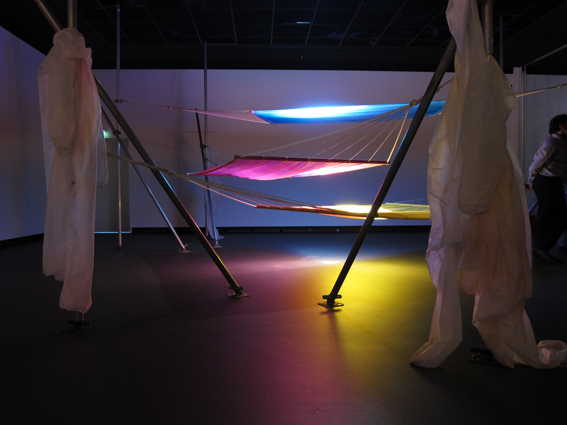 |
| Cooking times, Giulia Giannola 2011 |
 |
| Cooking times, Giulia Giannola 2011 |
Kochzeiten, Cooking Times
A text by Francesca Mila Nemni
It is not just by chance that the word “time” appears in Giulia Giannola’ s latest work, “Kochzeiten (Cooking Times), eine Protraitserie.” Time is one of the key-concepts at the heart of this young Neapolitan artist’s research: she regards it as a crucial factor in contemporary societies, conditioning and even determining commercial, behavioral and relational exchanges.
These little videos, which call to our mind those Sunday morning TV programs on cooking, show some Berliners preparing food for their families. A Berliner, though, is not necessarily a German. Quite the contrary. So Giannola’s cooks prepare their food according to Turkish, Italian, Slavic, Chilean traditions… because today’s Berliners often come from more or less faraway countries.
Cooking and preparation times reveal differences in attitudes, habits, traditions. They reveal the personalities of the cooks. Some of them are very precise and professional, others prefer simple and quick preparations, and yet others believe that good food can’t be prepared in a hurry (feeling that haste is the enemy of good food). You can tell the “good mums,” who spend most of their lives in the kitchen, from those cooking only for the big events. “Cooking Times” shows that food is an occasion for “sharing”: being together and taking taking care of each other—and oneself.
This story is told by the very people who cook their dishes while explaining the proper way to cut potatoes, and the best way to butter a pan. Some of their comments sound very detailed, some much less so. They “sound”, but we cannot be sure. That is because we face a babel of narrators’ voices, where each cook speaks his or her own language.
“Cooking Times” illustrates in a very simple way a normal condition in our contemporary life: a common condition of “superficial experiencing,” whereby on the one hand we are able to get in touch with many more cultures than in the past but, at the same time, we are denied access to any deeper knowledge. We all have tasted Italian, Oriental, Turkish dishes, but how many of us really know something about the places where these dishes come from? More to the point: how many of us are really interested in knowing them, or in speaking the languages of the people we are talking to?
Giulia Giannola’s videos show clearly that a meeting of cultures is going on- especially in big cities. With the same clarity, they show how extremely superficial this meeting of cultures still is. We consume quickly. We are more interested --because it is easier— in eating an udon, than in knowing how it is made. This is the reason why no translation is needed.
A beautiful movie by Manuel De Oliveira -“Un filme falado”- comes to mind. In it, every actor/actress was acting in his/her own language: French, Italian, Greek….A great meditation on intercultural communication. “Cooking Times” has no subtitles. Consequently, while on the one hand it suggests, (while at the same time denouncing) a superficial vision, on the other hand it could be the first step towards a project of deep intercultural communication. He who has ears to hear, let him hear.












































